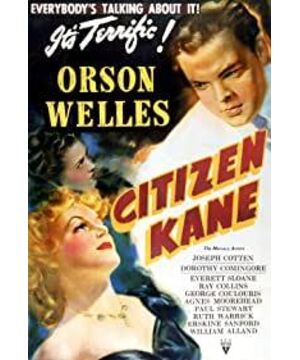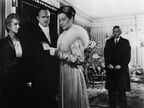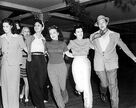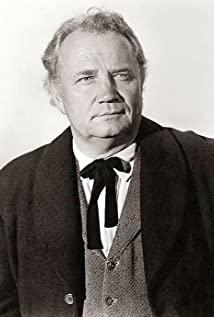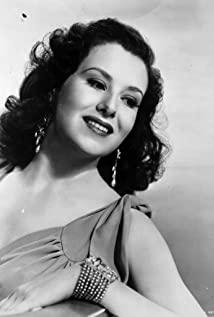"Citizen Kane" (1941)
Any aspiring film fans will definitely hear the name "Citizen Kane" when they are just getting started. This work has been recognized as the number one classic in film history by the Western world for many years. When I first saw it ten years ago, I didn't feel that I couldn't understand it, and I even thought it was very good-looking, but I can't say what is enough to leave a name in film history. Later, I re-read it several times, including listening to Mr. Huang Jianye explain the narrative design of the whole film in the screenwriting class of Mr. Huang Jianye. Of course, many introductory books of movies do not forget to leave a chapter for the film, and turn over to leave a rough impression, probably That's it.
I didn't think there would be anything new to watch this time on the big screen. Although the 35mm copy is rare, the effect without digital restoration is not amazing. The 1.33:1 scene frame I sat in later Also appears smaller. It's just when the first picture begins, the sight climbs the walls one after another with the camera, and I start to recall how the layers of camera are approaching the last moment of the protagonist's life, the twisted glass ball and his mumbling mouth. A close-up, calling out the riddle of "Rosebud". I gradually realized that I was re-entering one of the most famous cinematic labyrinths in film history, with the camera and the rhythm building wall after wall with such precision that we were trying to penetrate Foster Kane's heart, and we were stepping into Orson In the confusion of Wells.
After the prelude, a pseudo-news short film introduced the great achievements of the great nation in his life, and effectively foreshadowed the fragments that the whole film would pick up. After the short film ended, the camera shot directly to the "audience". Reporters who are not satisfied with their coverage, their faces and figures are dark silhouettes in the light of film noir, a reporter will be the promoter of the film's narrative, but we will not see what he looks like, Because he is representing us peeping viewers. Afterwards, the reporter asked from biographies and various interviews what exactly is "Rosebud"? Different people's different opinions have established different propositions for Ken, and no one can see the whole picture but it is all true.
Because you already know the plot, you can see how the script carefully buried the foreshadowing in the protagonist's childhood, and how the camera cuts around like a dance until the adult Ken appears. The narratives of different viewpoints are combined in one scene, which makes people dazzled and even more surprised that the film is laying out a maze of American cultural symbols. The roles and lights are intertwined between shadows and lights. The undercurrent of relationships and power. The various characters beside Kane walked on the stage and walked down their lives as if they were destined. In each turn and delicate lines, they delineated their own destiny, and also reflected Kane's tragedy.
Don't forget that when Kane and the showgirl first met, he was about to retrieve his mother's "relic". The showgirl who didn't know Kane's name was stripping away all the walls and disguises he built for himself, but it also made him a success in the future. The bigger obsession is that the wealth of the rich and the enemy cannot win the love of the public, nor can he learn how to love the people around him. It seems like a simple metaphor for the American Dream, except that it all seems predestined.
Finally, the bird's-eye view swept across the mountains of wealth in the mansion. It was a huge mess created by a person who spent his whole life. It also reminded us of the two-hour movie. A movie is like creating a biography for a country and a person's life. The rosebud is an inexplicable spell in a chaotic world. It pushes everything but is nothing. After walking through the film in vain, the reporter told the audience that we should not delusionally define a person's life with one word, but the camera does not. Tell us that the movie can always go further. The language of the movie reveals the truth of the rosebud, but there is still a real mystery behind the symbol. How close do we really think the movie can get to the truth?
View more about Citizen Kane reviews


